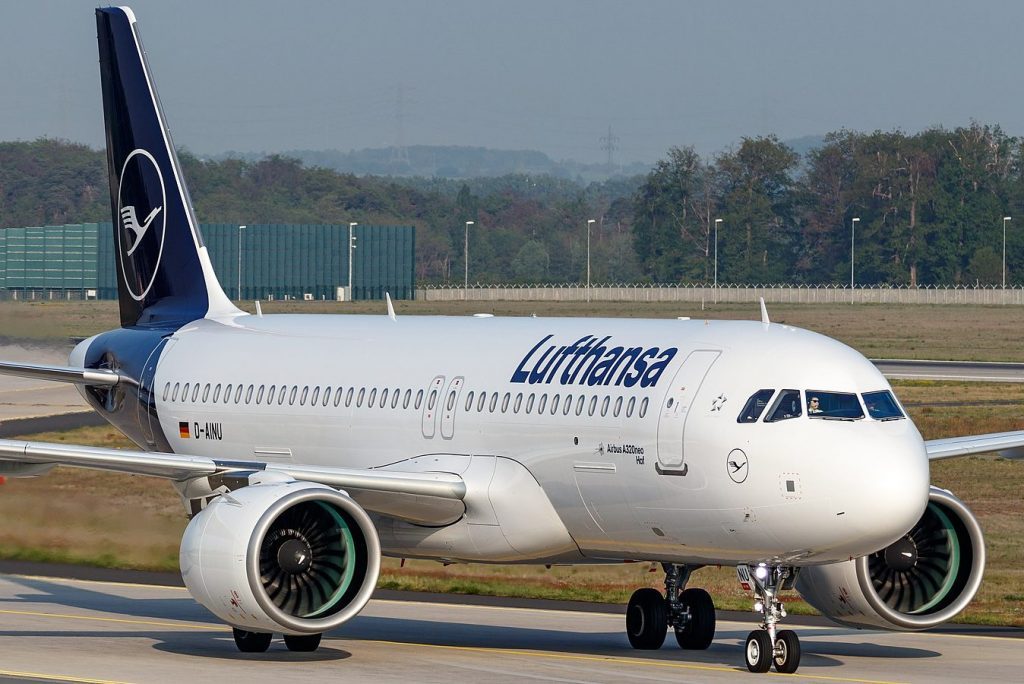
Two airlines that penalize bookings made through non-direct channels are seeing the fruits of their labor, but other parts of the industry could end up paying the price.
Lufthansa Group and Singapore Airlines made significant announcements this week in relation to New Distribution Capability — the technology standard developed to allow airlines to sell rich content and ancillaries directly to customers.
From January 2021, Lufthansa will bring its Light Fares and continuous pricing to American Express Global Business Travel‘s online booking tool Neo, via NDC, with no extra booking fee. Previously, business travelers would have paid a surcharge of $21 per ticket if booked through a global distribution system. The agreement also includes Austrian Airlines, Lufthansa, Swiss and Brussels Airlines.
Meanwhile, Singapore Airlines has expanded its tie-up with Amadeus, and will make its NDC offers available through the Amadeus Travel Platform from next year. Bookers will avoid a $12 penalty for bookings made on global distribution systems being added from January 4, 2021. Like Lufthansa, the airline also plans to introduce dynamic fares.
The developments are likely to be welcomed by company travel managers. As well as avoiding the booking fees, it means their travel agencies will be able to cancel, void, refund and modify those bookings without having to contact the airline directly. The fares include ancillary services such as seat selection, excess baggage, special discounts, and personalized merchandising offers.
“This exciting announcement is yet another leap forward for Amadeus in our NDC journey. Driving NDC forward and realizing its next generation retailing capabilities for our customers is a key part of our long-term global strategy,” said Javier Laforgue, executive vice-president, airlines distribution and content sourcing at Amadeus.
Airlines Are Getting Their Own Way
It may be part of Amadeus’ strategy, but really it’s something the airlines have been aggressively pushing this year.
Along with British Airways and Air France-KLM, they’ve been hiking ticket prices that are processed via the distribution middlemen, which also include Sabre and Travelport.
Last month, Reed & Mackay integrated into British Airways’ NDC content, and the airline said it has now surpassed the International Air Transport Association’s “Leaderboard” target of achieving 20 percent NDC bookings by 2020. In September Air France-KLM signed an NDC deal with Amadeus.
Experts predicted as early as April the lack of flying would mean more time to consider these new types of connections, giving New Distribution Capability a new lease of life.
“The airlines’ strategy is starting to pay off and it seems we’ll be seeing a lot more of these announcements in 2021 as more airlines start to push differentiated content and consider introducing surcharges or incentives through their NDC channels,” said Steve Domin, founder and CEO of aggregator Duffel.
“Early in the year there was a lot of fear that the momentum around NDC would stall. It’s been quite the opposite. This is exciting for all the parties involved — buyers, airlines, travel agents, aggregators — as it accelerates the transition to a richer, more modern distribution world.”
Too Much, Too Soon?
However, as the major carriers promote this industry shift they pave the way for smaller carriers to step up and sell tickets directly. Any opportunity to boost sales with lower distribution costs will be jumped on after the pandemic wiped out most revenue in 2020. Will smaller travel agencies be able to keep up?
“How about all the mid-size corporate travel agencies, and OTAs, that don’t have the technical skills to interpret and build the connection from each carrier,” said Alice Ferrari, CEO of retail platform Kyte.
“Big players such as Amex GBT and Reed & Mackay have the resources to do these integrations, but the question is how many can they build and sustain at the desired speed. There is an increasing number of airlines building and promoting their NDC channels. Direct connects require maintenance, management and updating; multiply that by 10, 20 or 50 airlines.”
Meanwhile, there are questions about what’s happening behind the headlines. Travel agencies, and global distribution systems, rarely disclose commercial terms but in Air France-KLM’s deal with Amadeus, there will be a surcharge of “a few euros” per ticket for agencies using the new content.
“You won’t see a single announcement made by a GDS mentioning the commercials because this is exactly what they try to obfuscate as much as possible,” said Jorge Diaz, CEO and founder at AirGateway. “They always hide the fact that those agreements don’t involve their traditional $6-8 per segment paid by the airline to them which made 70 percent of their generous revenue during the past 30 years.”
He predicts every flag carrier, excluding those in the U.S., will have a GDS surcharge in place by the middle of 2021, meaning more global distribution systems will begin to charge travel agencies for their service to bring the new airline content to their screens.
“This completes the de-monopolization of the airline distribution industry. It means technically the death of a 30-year long commercial model that have made the GDSs the richest guys in the industry, and also a different commercial landscape for the direct distribution age, where the airlines pay incentives to the agencies directly and not to the GDSs or aggregators like us,” he added.
“I don’t think this is the end of the war but just one more step in the airlines’ offensive against the GDSs.”
"direct" - Google News
December 17, 2020 at 09:17PM
https://ift.tt/2KgHmFl
The Hidden Costs of Airlines Selling Direct - Skift
"direct" - Google News
https://ift.tt/2zVRL3T
https://ift.tt/2VUOqKG
Direct
Bagikan Berita Ini














0 Response to "The Hidden Costs of Airlines Selling Direct - Skift"
Post a Comment